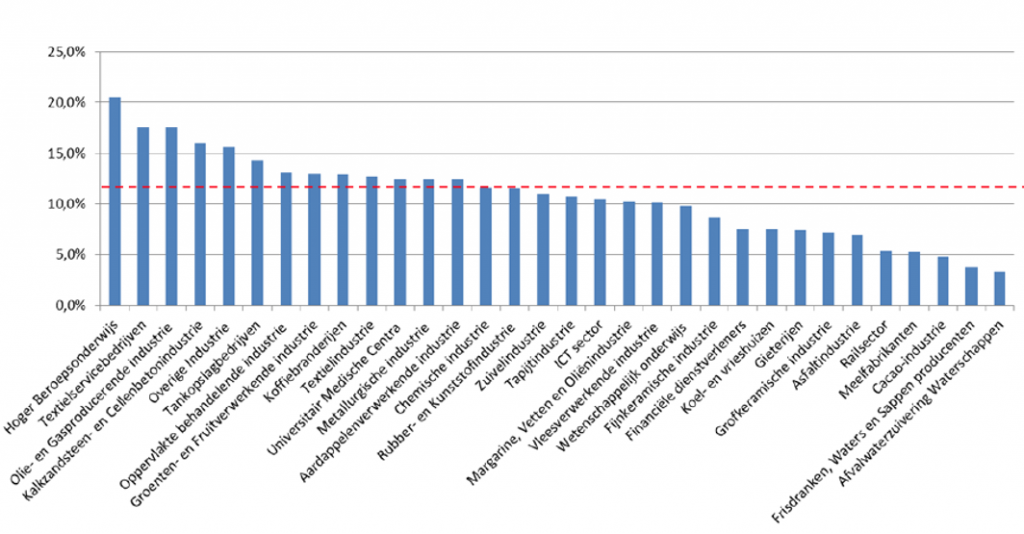- Client: Dutch Ministry of Economic Affairs and Climate Policy (EZK)
- Implementation period: January, 2012 - December, 2013 (Completed)
- Geographic coverage: The Netherlands
- Theme: Energy
- Topic: Energy Efficiency
- Experts: Stephan Slingerland
Did the Dutch policy on energy efficiency (MJA3) contribute to additional energy savings for Dutch businesses?
Staff of Trinomics (with project lead partner Ecorys) evaluated the Dutch covenant the ‘Multi-Annual Agreement on energy efficiency 2008-2020 (or Meerjarenafspraken energie-efficiëntie 2008-2020), which comprise a set of measures that should improve the energy efficiency in Dutch industry. The aim of the covenant is to support the businesses that signed the agreement (1,160 by 2012) to reach a 30% improvement in energy efficiency from 2005-2020.
In the evaluation on the effectiveness and the efficiency of the programme, we concluded that:
- The foreseen improvement in energy efficiency has been realised by Dutch businesses. During the period 2005-2011 total energy savings of approximately 60 TJ were realised. Without the use of renewable energy, the energy savings would have been equal to 27 TJ. Therefore, the actual energy savings achieved in this period amount to 13%, or 2.1% per year.
- The contribution of the MJA3 to the improvement in energy efficiency is however limited as the Dutch-MJA3 industrial sectors hardly perform better in terms of achieved energy savings than their competitors in the rest of Europe. According to Dutch industrial stakeholders, approximately 50% of the achieved savings can be attributed to the covenant.
- The implementation and regulatory costs related to the covenant are relatively high, despite a decreasing trend in implementation costs. In the period 2008-2012 the average implementation costs equalled €15.3 million per year, though the labour input declined from 60 FTE in 2010 to 43 FTE in 2013. The expected total costs for all participating companies amounted to €6-11 million per year.
